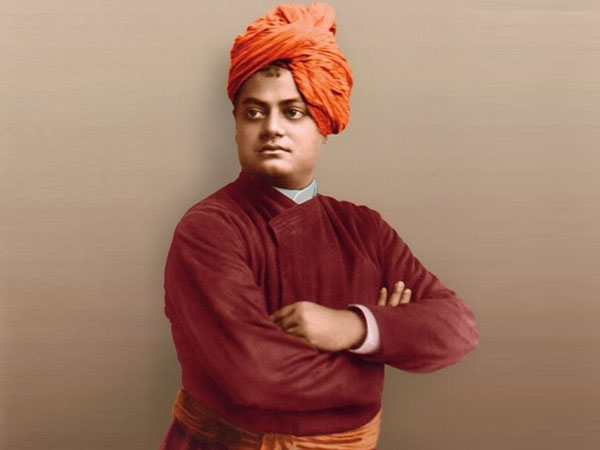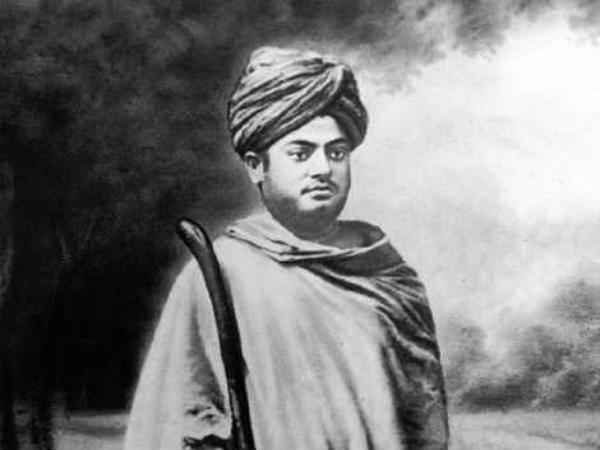
Who was Swami Vivekananda? Remembering India’s greatest philosopher
Swami Vivekananda was one of the most celebrated spiritual leaders of India. He was more than just a spiritual mind; he was a prolific thinker, great orator and passionate patriot.
Born in Kolkata on January 12, 1863, Swami Vivekananda was known as Narendra Nath Datta in his pre-monastic life.

The philosopher, who is extensively known for disseminating the tenets of Hindu Philosophy through his lectures and speeches lived a short life. He died even before attaining the age of 40.
Swami Vivekananda has influenced many lives and his contribution in spreading Hinduism has in the 19th century is exemplary.

Early life
Swami Vivekananda was born at his ancestral home at 3 Gourmohan Mukherjee Street in British Capital Calcutta. Son of Vishwanath Dutta, who was an attorney at the Calcutta High Court and a devout housewife Bhubaneswari Devi, Naren's upbringing was influenced by his father's liberal thinking and his mother's spiritual and religious temperament.
As a young boy, Narendranath displayed sharp intellect. His mischievous nature belied his interest in music, both instrumental as well as vocal.
He was a good student, besides being proficient in music and sports. He stood up against many of the superstitions prevalent during that time and had great affection and respect for ascetics.By the time he graduated from the college, he had acquired a vast knowledge of different subjects. He was active in sports, gymnastics, wrestling and body building.

Spiritual crisis and relationship with Ramkrishna Paramhansa
With a special interest in Western philosophy and history, Vivekananda was often assailed by doubts about the existence of God. It was during this time, that he met Sri Ramakrishna, who later became his guru.
Earlier, to satisfy his intellectual quest for God, Narendranath visited prominent spiritual leaders from all religions, asking them a single question, "Have you seen God?" Each time he came away without a satisfying answer. He put forward the same question to Sri Ramkrishna at his residence in Dakshinewar Kali Temple compounds. Without a moment's hesitation, Sri Ramakrishna replied: "Yes, I have. I see God as clearly as I see you, only in a much deeper sense." Vivekananda, initially unimpressed by the simplicity of Ramkrishna, was astonished with Ramakrishna's reply.

Spiritual awakening
In
1884,
Naredranath
underwent
a
considerable
financial
distress
due
to
the
death
of
his
father
as
he
had
to
support
his
mother
and
younger
siblings.
He
asked
Ramakrishna
to
pray
to
the
Goddess
for
the
financial
welfare
of
his
family.
On
Ramakrishna's
suggestion
he
himself
went
to
the
temple
to
pray.
But once he faced the Goddess he could not ask for money and wealth, instead he asked for ‘Vivek' (conscience) and ‘Bairagya' (reclusion). That day marked the complete spiritual awakening of Narendranath and he found himself drawn to an ascetic way of life.

Life of a Monk
During the middle of 1885, Ramakrishna, who had been suffering from throat cancer, fell seriously ill. In September 1885, Sri Ramakrishna was moved to Shyampukur in Culcutta, and a few months later Narendranath took a rented villa at Cossipore. Here, he formed a group of young people who were ardent followers of Sri Ramakrishna and together they nursed their Guru with devoted care. On 16 August 1886, Sri Ramakrishna gave up his mortal body.
After the demise of Sri Ramakrishna, around fifteen of his disciples including Narendranath began to live together in a dilapidated building at Baranagar in North Calcutta, which was named Ramakrishna Math, the monastic order of Ramakrishna. Here, in 1887, they formally renounced all ties to the world and took vows of monkhood. The brotherhood rechristened themselves and Narendranath emerged as Vivekananda meaning "the bliss of discerning wisdom".

Travel and philosophy
Travel and philosophy He travelled to the West bearing HIndu philosophy and introducing Indian heritage, culture and philosophy to the West. Of his many lectures, the one in Chicago at the Parliament of the World's Religion is the most revered. Here, he gave a brief speech representing India and Hinduism. With his introductory speech, satrting "Sisters and brothers of America", Swami Vivekananda earned a 2-minute standing ovation from the crowd of seven thousand.

Death
Swami Vivekananda attained Mahasamadhi on July 4, 1902. He woke up early, went to Belur Math and meditated there for three hours. After taking classes and discussing a planned Vedic college in Ramakrishna Math, he went to his room at 7 pm and asked not be disturbed. He was cremated on the Banks of river Ganga.


 Click it and Unblock the Notifications
Click it and Unblock the Notifications
































